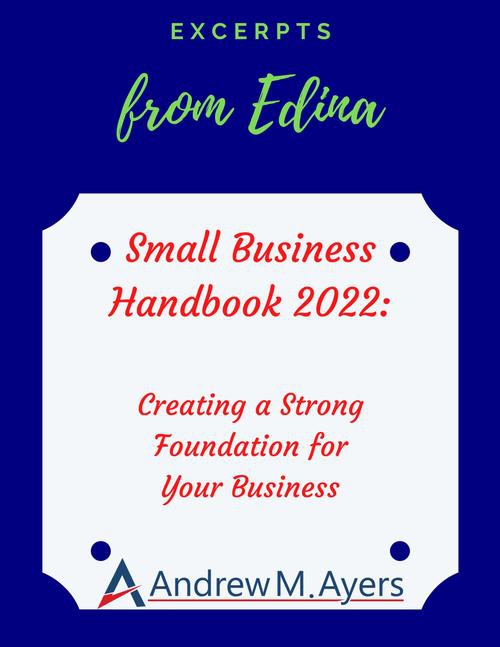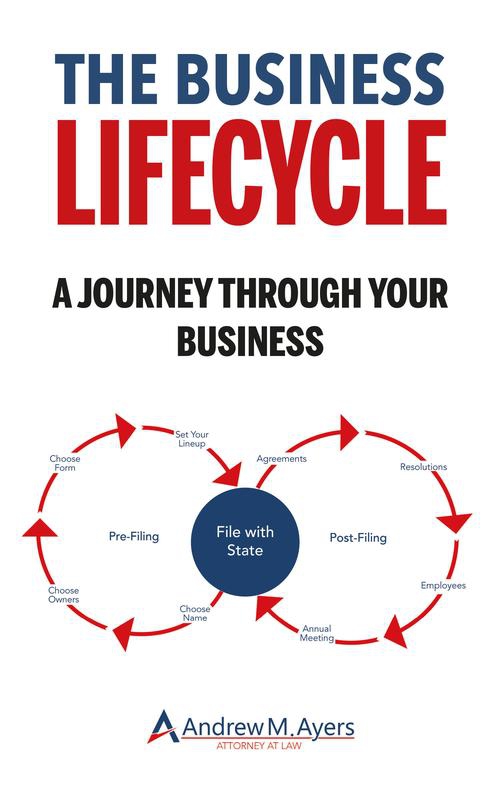 Starting or expanding a business often requires significant capital, and many new business owners turn to loans or lines of credit to fund their ventures. However, securing financing can be challenging, especially if the business lacks a proven track record or sufficient assets to secure the loan. In such cases, lenders often require the business owner to sign a personal guarantee as part of the loan agreement.
Starting or expanding a business often requires significant capital, and many new business owners turn to loans or lines of credit to fund their ventures. However, securing financing can be challenging, especially if the business lacks a proven track record or sufficient assets to secure the loan. In such cases, lenders often require the business owner to sign a personal guarantee as part of the loan agreement.
While signing a personal guarantee can help you obtain the financing you need, it also exposes you to significant personal financial risk. Sometimes, you don't have other options, and signing a personal guarantee will be the only way to get the financing you need.
Before you sign it, however, it's important to understand what a personal guarantee is, how it works, the risks involved, and how to minimize your exposure when signing one.
What Is a Personal Guarantee?
A personal guarantee is a legal promise made by a business owner or an individual to repay a business loan or debt if the business itself is unable to do so. Essentially, by signing a personal guarantee, you are putting your personal assets on the line in the event that the business defaults on the debt. If the business cannot meet its obligations, the lender can pursue your personal assets—such as your home, savings, or other personal property—to satisfy the debt.
Personal guarantees are common in small business financing, especially for new or unestablished businesses. Lenders typically require them when the business lacks sufficient collateral or credit history to qualify for a loan on its own.
Types of Personal Guarantees
There are different types of personal guarantees, each with varying levels of risk and obligation:
-
Unlimited Personal Guarantee: This is the most common and most risky type of personal guarantee. With an unlimited personal guarantee, you are personally liable for the entire amount of the loan, plus any interest, fees, and legal costs associated with the debt. In the event of default, the lender can pursue any of your personal assets to recover the full amount owed.
-
Limited Personal Guarantee: In a limited personal guarantee, your liability is capped at a specific amount, typically a percentage of the loan. This type of guarantee is more favorable because it limits the amount of personal exposure. Limited guarantees are often used in situations where there are multiple business owners or guarantors, with each party responsible for a proportionate share of the debt.
-
Joint and Several Guarantees: If there are multiple guarantors, such as co-owners or partners, the lender may require a joint and several guarantees. Under this agreement, each guarantor is individually responsible for the full amount of the debt, meaning the lender can pursue one guarantor for the entire loan amount if the others cannot pay.
Why Lenders Require Personal Guarantees
Lenders view personal guarantees as a way to reduce their risk when lending to businesses, particularly small or new ones. In the early stages of a business, the company does not have a strong credit history, sufficient revenue, or valuable assets to serve as collateral for a loan. By requiring a personal guarantee, the lender gains additional security, knowing that if the business fails to repay the loan, they can still recover their money by pursuing the guarantor’s personal assets.
From the lender’s perspective, a personal guarantee ensures that the business owner has “skin in the game” and is committed to the success of the venture. It aligns the interests of the lender and the business owner, as both parties now have a vested interest in the financial health of the business.
Risks of Signing a Personal Guarantee
While a personal guarantee can help you secure much-needed financing for your business, it comes with significant risks that should not be taken lightly:
-
Personal Liability: The most obvious risk of signing a personal guarantee is that you are putting your personal assets at risk. If your business is unable to repay the debt, the lender can pursue your home, savings, retirement accounts, and other personal assets to satisfy the loan. In the worst-case scenario, this could lead to bankruptcy or severe financial hardship.
-
Impact on Credit Score: If the business defaults on the loan and you are unable to repay the debt as the guarantor, it can have a negative impact on your personal credit score. A damaged credit score can make it more difficult for you to obtain personal loans, mortgages, or other forms of credit in the future.
-
Joint and Several Liability: If you have business partners or co-owners and sign a joint and several guarantee, you could be held responsible for the full amount of the loan, even if your partners are unable or unwilling to pay. This means you could end up shouldering more than your fair share of the debt.
-
Unlimited Duration: Some personal guarantees may remain in effect for the entire duration of the loan or credit agreement, which can be several years. Even if you leave the business or sell your ownership stake, you could still be liable for the debt unless you negotiate a release from the personal guarantee.
How to Minimize Risk When Signing a Personal Guarantee
Although personal guarantees carry inherent risks, there are steps you can take to minimize your exposure:
-
Negotiate the Terms: Before signing a personal guarantee, try to negotiate the terms with the lender. Ask if the guarantee can be limited in scope or duration, and request that your liability be capped at a specific amount or percentage of the loan. You can also negotiate for a release from the guarantee if the business meets certain financial milestones or if you sell your ownership stake.
-
Separate Personal and Business Assets: One of the best ways to protect your personal assets is to maintain a clear separation between your business and personal finances. Keep separate bank accounts, maintain accurate records, and avoid commingling personal and business assets. This can help shield your personal assets from business liabilities in the event of a legal dispute.
-
Review the Business’s Financial Health: Before taking on personal liability, carefully assess your business’s financial health and prospects for success. If the business is struggling or facing significant risks, signing a personal guarantee may not be the best option. Be honest about the likelihood of repayment and consider other financing alternatives if necessary.
-
Understand the Loan Terms: Make sure you fully understand the terms of the loan or credit agreement before signing a personal guarantee. Pay attention to details such as interest rates, repayment schedules, and any fees or penalties that may apply. If the loan terms seem unfavorable or overly risky, consider seeking financing from another lender or exploring alternative funding options.
-
Obtain Legal Advice: Before signing any personal guarantee, speak with an attorney who specializes in business or contract law. An attorney can help you understand the full scope of your obligations and ensure that the terms of the guarantee are fair and reasonable. Work with your attorney to make sure you truly understand what you are signing.
-
Use Collateral Instead: If possible, offer the lender specific business assets as collateral instead of signing a personal guarantee. While offering collateral still exposes the business to risk, it can protect your personal assets from being seized in the event of default.
-
Seek Alternatives: If you’re uncomfortable with the risk of a personal guarantee, explore alternative funding options that don’t require one. Some alternatives may include:
- Equity Financing: Instead of taking on debt, consider raising capital by selling equity in your business to investors.
- SBA Loans: Small Business Administration (SBA) loans are government-backed and may offer more favorable terms than traditional business loans.
- Crowdfunding: Platforms like Kickstarter or Indiegogo allow you to raise money from the public without taking on debt.
Remember that signing a personal guarantee for your business debt is a significant financial commitment that can have long-lasting consequences for both your business and personal finances. While it can help secure critical funding for your business, it’s essential to understand the risks involved and take steps to protect yourself. By negotiating favorable terms, keeping your personal and business assets separate, and consulting with legal and financial professionals, you can minimize the risks of a personal guarantee and make an informed decision that aligns with your financial goals and risk tolerance.
Do I Need a Business Attorney?
If you've been given a personal guarantee and you don't understand all the terms, let's schedule a Legal Strategy Session online or by calling my Edina, Minnesota office at (612) 294-6982 or my New York City office at (646) 847-3560. My office will be happy to find a convenient time for us to have a phone call to review the best options and next steps for you and your business.




